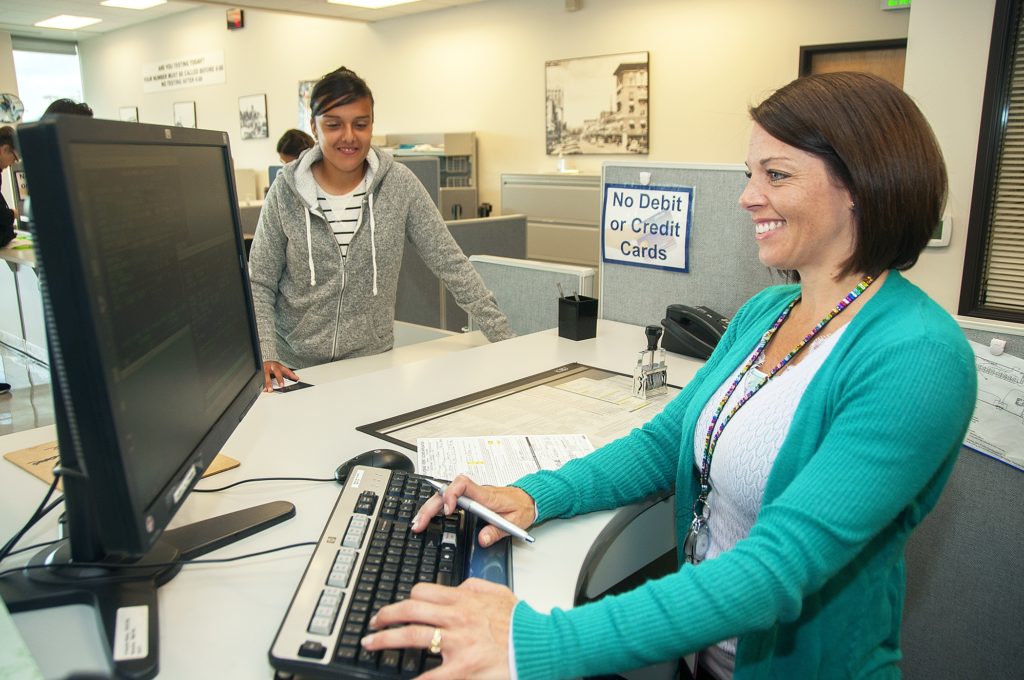Even incredibly patient people can’t stand waiting in lines – whether
that’s at the bank, airport, or pizzeria. We either get bored or angry
that it’s taking longer than expected. In fact, businesses learn all
about this in Queuing Theory – which uses data to determine if a business should hire more employees or add an additional elevator shaft.
This theory has more recently been used in analyzing web servers.
Why? Because waiting for a website to load is no different from waiting
in line for a delicious slice of pizza. We want that pizza now. And if
it takes too long to get that slice, we’ll walk out the door and find
somewhere else to eat. The same is true when surfing online. If a site
takes too long to load, we’re outta there.
But, how important is site speed in 2014?
Google Has The Need For Speed
For starters, Google thinks site speed is important. Some would even
go as far to say that Google has a bit of an obsession with how quickly a
page loads.
Which isn’t exactly breaking news. Google has always rewarded sites
that have clean codes and download quickly. This became particularly
apparent when the Big G announced its Speed Online Tool in 2011.
From its Webmaster Central Blog, here’s a description of the tool:
At Google, we’re striving to make the whole web fast. As part of that effort, we’re launching a new web-based tool in Google Labs, Page Speed Online, which analyzes the performance of web pages and gives specific suggestions for making them faster. Page Speed Online is available from any browser, at any time. This allows website owners to get immediate access to Page Speed performance suggestions so they can make their pages faster.
But, why does Google care about site speed?
Former Vice President Marissa Mayer asked users if they preferred 10 or 30 results for Google searches. Obviously, web surfers went with the higher number, and Google made the changes.
The result? Traffic dropped by 20 percent on the pages that featured 30 results. Yet, the download speed difference between the pages with 10 and 30 results was only half a second – what an impact!
It should be noted that page speed is one of 200 or so signals Google uses to determine rank. In fact, as Moz has pointed out, page speed has affected less than one percent of search queries.
Keep in mind though, that page speed remains a ranking factor in Google’s algorithm for both desktop and mobile sites. John Ekman explains in an article on Unbounce that faster load times will indeed improve your ranking, as well as help you gain more organic traffic.
So while it’s just one of many factors in determining your site’s
ranking, it’s certainly shouldn’t be ignored, especially since mobile sites can be penalized for loading slowly.
Site Speed Improves User Experience
Site speed will also improve the experience for visitors.
This should be common sense. After all, how many times have you left a
website because it was taking forever to load? But, to convey just how
important loading time is for users, here are some fascinating stats:
- According to a case study from Radware, 51 percent of online shoppers in the U.S claimed if a site is too slow they will not complete a purchase.
- Radware also discovered in another study that the demand for loading speed has increased over time. For example, in 2010 a page that took six seconds to load witnessed a -40 percent conversion hit. In 2014? That same loading time suffered -50 percent conversion hit.
- Research has found that 47 percent of web users expect a website to load in under two seconds.During peak traffic times, 75 percent consumers are willing to visit competitor sites instead of dealing with a slow loading page.
- Besides making visitors happy, having a website that loads quickly is good for business. In fact, Strange Loop has stated that just “a one second delay can cost you 7 percent of sales.”
In short, if you want people to hang around your site and make a
purchase, it has to load in under two seconds. If not, people have no
hesitation in jumping ship to another site.
What Causes Your Page to Load Slowly?
There are a number of reasons why your web page is taking its
sweet old time to load. And one of the first places to look is with your
host.
Having the right host to fit your needs is a great business move, regardless.
Remember, what you pay for is what you get. A cheap host may save you
some money in the beginning, but it may not be reliable, which in turn
will hurt your business in the long run. Make sure that you select a
trusted host that can handle the needs of your business.
But what if you have a great host and are still having pages that load slowly? Here are some other common causes.
- Unoptimized Images: Unoptimized images actually impact 90% of the sites included in the Alexa 1000. These are usually PNG and JPEG images that have extra data included for comments or because they contain an inefficient DEFLATE compressor. PNG should be used for icons or logos, but JPEGs work better as photos.
- Widget/Plugin Overload: Sometimes the unsuspecting comment or social media buttons are to blame. For example, Matthew Ogborne discovered that the Facebook Like button was downloading 83 Kb of data at 1.34 seconds of load time.
- Incompatible Browsers, Plugins, and Apps: Take Flash as an example. It can seriously slow down a webpage. And it’s not even compatible with most mobile devices. Also consider browsers like Chrome don’t always play nice with plugins. Always test your site to see how fast your site is loading on different browsers and devices.
- Lots of Ads: No one likes tons of ads, but they can also slow down loading time. It only takes that one slow-loading ad to cause visitors to flee.
- Bulky Code: Whether it’s a code for analytics, sign up forms, affiliates, or inefficient HTML5/ CSS, they can all add up to make your site drag. Try to condense codes and shrinking files.
- Design Theme: While you want your site to look amazing, make sure you theme isn’t bringing your load time to a screeching halt.
- External Embedded Media: Media like videos or slide shows may be valuable content, but they can also slow down loading speed because the site they are hosted on may be having issues. Try to host content on your own server to boost speed.
Tools to Test and Improve Site Speed
If you’re still having problems with site speed, or just curious to
see how your page is doing in that area, there are plenty of free tools
that can test the speed of your site. Here are ten tools that can test
and help you improve the speed of your site (editor note: we have no affiliation with any of these listed, except for occasionally syndicating content by Yoast).
WebPageTest
This tool is supported by Google and allows you to run a free website
speed test. It provides waterfall charts that break down content, check
for Page Speed optimization, and make suggestions for improvements
after receiving a page speed score out of 100.
Pagespeed Insights
This is a must-use tool from Google. Besides being easy-to-use,
you’ll receive a page speed score out of 100 and analysis of both the
desktop and mobile versions of your site. You get recommendations that
are divided into high-, medium- or low-priority.
Google Analytics Plugin By Yoast
This is an essential plugin if you have WordPress for SEO purposes,
plus it can also determine your load time across multiple browsers.
Yslow
This was designed by Yahoo! and has some pretty neat features like
grades determined by predefined rule set or a user-defined rule
set, suggestions for improvement, summary of components of the page, and
performance analysis like Smush.it and JSLint.
Pingdom Website Speed Test
Probably the best feature about this tool is that it performs tests
on browsers like Chrome, which better reflects real-world conditions.
Another nice feature is that you can see how well your speed is
measuring up to parameters set-up by Google Page Speed and Yslow.
GTMetrix
Your speed will receive two speed page grades from GTMetrix and
Yslow, plus a charted history of page load times, analysis page sizes,
and request counts.
P3 (Performance Plugin Profiler)
If you use WordPress, this is a plugin you shouldn’t miss. It
examines which plugins are slowing down your site. Once this is
installed you can even use it to test other speed-increasing plugins
like Theme-Check.
Webpage Analyzer
Provides you with page size, composition, and download time. This
tool also comes with a summary of page components with advice on how to
improve page load time.
Load Impact
Unlike the other tools we’ve listed, Load Impact simulates a scenario
where your page is flooded with users. This simulation will determine
the areas where your site cracks, as well as how to fix any problems
before they happen.
Page Speed Tool (Internet Marketing Ninjas)
Provides a complete analysis of page load time, how long it takes
your page to load at different connection speeds, plus a report on
external CSS, Javascript, and image files.




The paid yoast functionality is not worth the price. The INK for All editor gives me tons more for free.
ReplyDelete